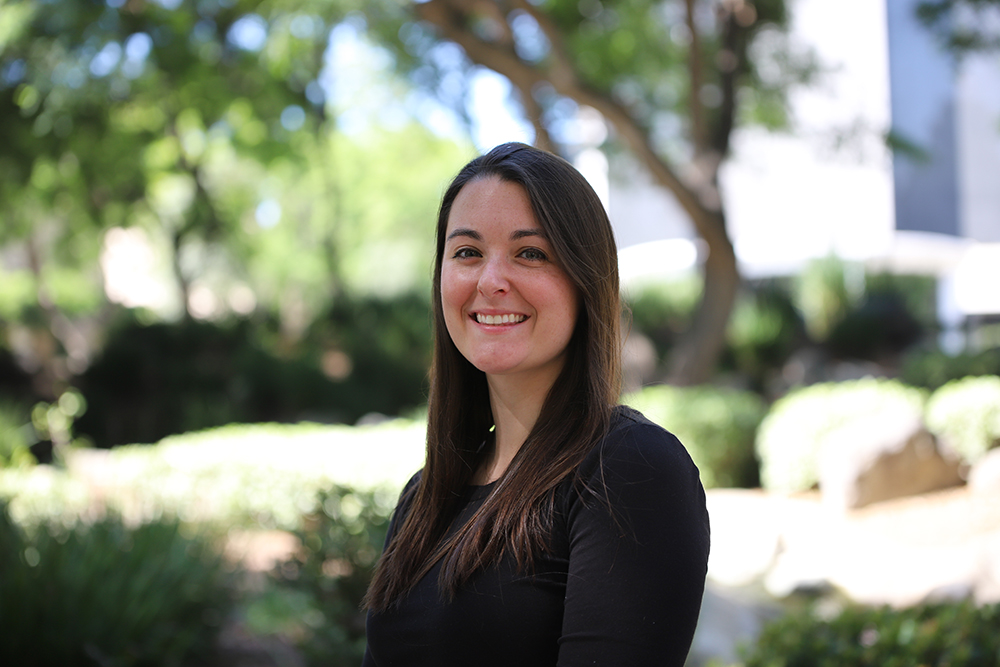
Faculty Spotlight: Assistant Professor Maegan Tucker
Get to know one of the Woodruff School's newest faculty members.
February 5, 2024
By Ian Sargent
A new year brings a new semester and some new additions to the George W. Woodruff School of Mechanical Engineering’s faculty. Learn more about Maegan Tucker’s research, who has influenced her career, what she is looking forward to during her first year as an assistant professor, and more in this Q&A.
Welcome back to Georgia Tech! Where are you joining us from?
I am joining from Pasadena, California. I was a Ph.D. student at the California Institute of Technology.
You received your undergraduate degree in mechanical engineering from Tech in 2017. How do you feel about being back as a member of the faculty?
I’m thrilled to be back! Georgia Tech is where I found my passion for research and technological innovation, so I’m excited to be able to help the next generation of students pursue their passions. Tech has also changed so much since 2017 and I’m excited to continue to watch it evolve.
What’s your research focus and how did you first become interested in the field?
My research is focused on the intersection between bipedal locomotion and lower-limb assistive devices. More specifically, my research aims to address fundamental questions surrounding how to achieve dynamic, comfortable, robust, and rehabilitative locomotion on lower-limb assistive devices for individuals with motor impairments. When I joined Georgia Tech as an undergrad, I was very interested in developing robotic prostheses (I joined as a biomedical engineering student before switching my major to mechanical engineering), but it wasn’t until after I started working with them that I discovered that most prosthetic devices rely on the human for locomotive stability. This then sparked my interest in translating techniques from the field of robotic bipedal locomotion to prostheses/exoskeletons.
Robotics and automation are areas poised for great advances. What breakthroughs would you like to see in these fields over the next decade?
I’d love to see the use of natural language for robot learning. Humans have such an innate ability to inherently know what are good and what are bad robotic behaviors. However, translating this understanding into feedback that is useable for machine learning is typically challenging (or at least it requires a lot of data). However, I think there are exciting new possibilities, especially considering recent advancements in language models, for making this process more natural/intuitive.
Has anyone had a major influence on your career?
As cheesy as it sounds, my mom has been my biggest role model. She started her academic journey as a Ph.D. student when I was only four years old. She became an assistant professor when I was about eight and is now a full professor and chair of operations and technology management in the Questrom School of Business at Boston University. Witnessing her navigate her own experiences in research/academia has taught me so much and given me the confidence to pursue my own academic journey.
What are you most looking forward to during your first year as an assistant professor at Georgia Tech?
I’m looking forward to getting robots up and walking! Starting a new lab can be challenging as it requires purchasing a lot of equipment, installing existing code, and inevitably writing several repositories worth of new code, but it can be hugely rewarding for those first few students as it allows them to get up close and personal with the robots.
You first came to Georgia Tech as an eager-to-learn first-year student, and so much has happened since then! What advice do you have for students who are just starting their Tech journey?
Stay true to your passions and don’t forget to enjoy the journey!
